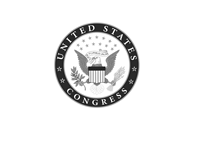Deal or No Deal?
 The clock is ticking.
The clock is ticking. The Congressional Joint Select Committee on Deficit Reduction, aka the "Super Committee", was created via the Budget Control Act of 2011.
The Budget Control Act of 2011 came as a result of the "debt ceiling" fiasco that nearly caused the United States to default in the summer of 2011.
The "super committee", which consists of six Democrats and six Republicans, was charged with issuing a recommendation that would seek to cut at least $1.5 trillion from the country's combined deficit over the next ten years. Per the terms of the Budget Control Act of 2011, the "super committee" has until November 23rd, 2011 to issue a joint recommendation. Congress would then vote on the committee's recommendations on December 23rd, 2011.
It's currently November 18th, 2011, which means that the "super committee" is rapidly running out of time.
If the "super committee" can't come to an agreement, then a "trigger mechanism" will be enacted that will cut $1.2 trillion in automatic spending cuts. These automatic cuts would be made to defense and domestic spending programs.
The "super committee" promised to look at a wide array of different deficit reduction measures, including revenue increases and spending cuts.
Unsurprisingly, the bipartisan panel has been unable to reach an agreement. Over 70 House Republicans recently stated that they would vote against any agreement that contained tax increases. Democrats believe that any deficit reduction agreement should include substantial revenue increases, while Republicans believe that spending cuts should make up all or most of the deficit reduction package.
Will the two sides come to an agreement, or will the automatic cuts end up triggering? We'll find out next week.
Filed under: General Knowledge



